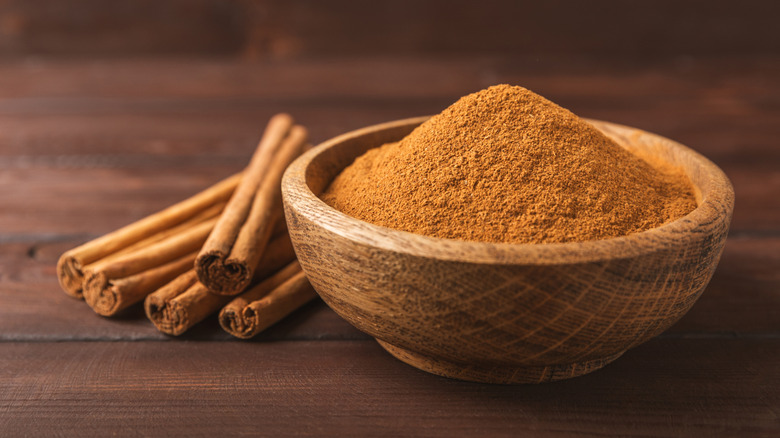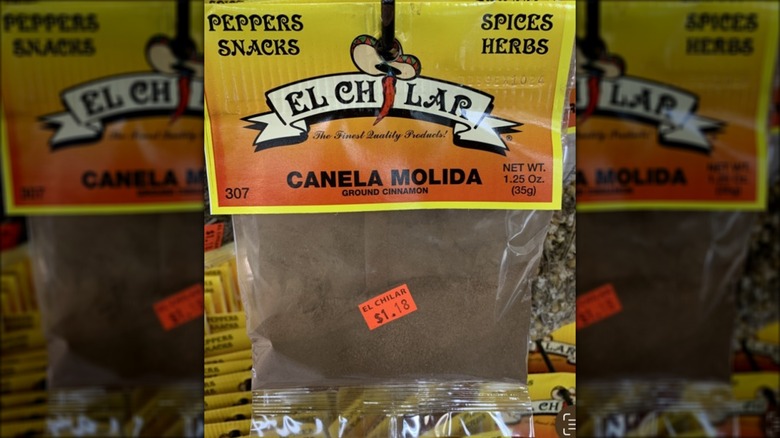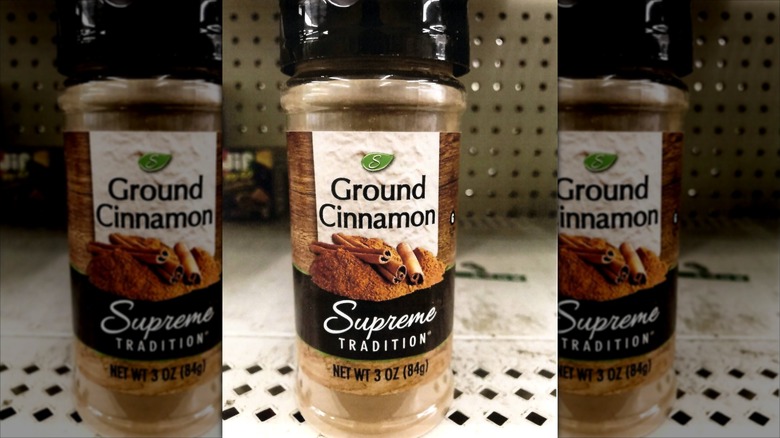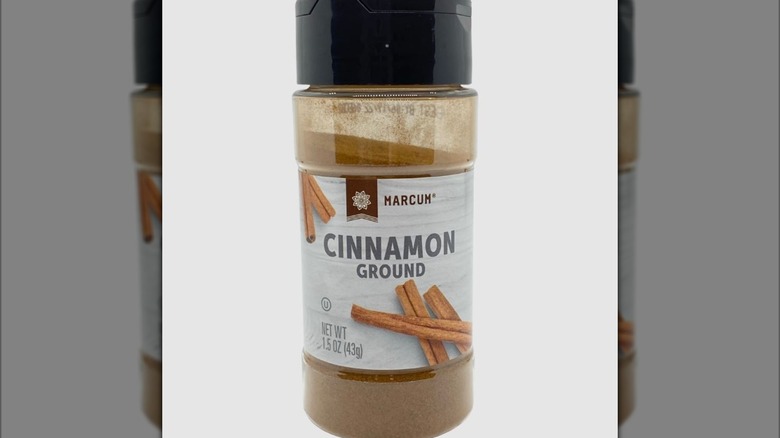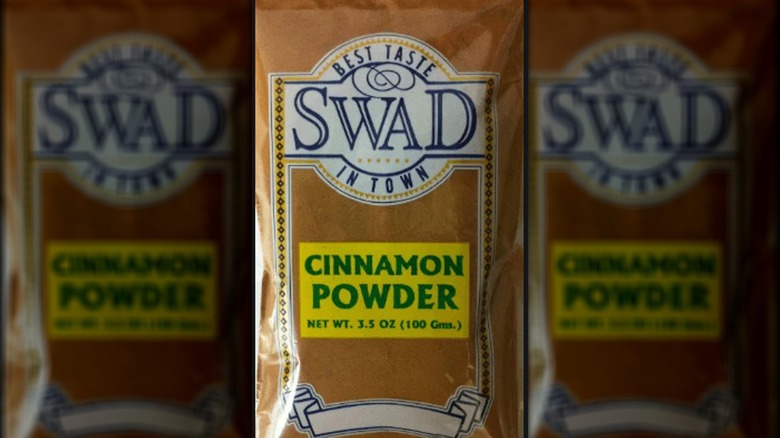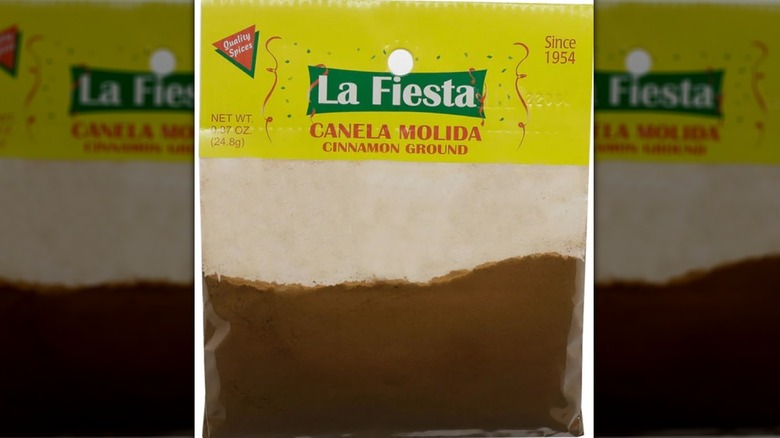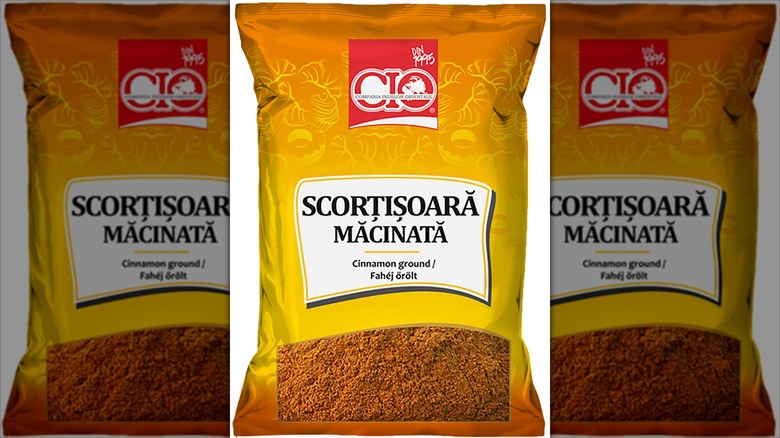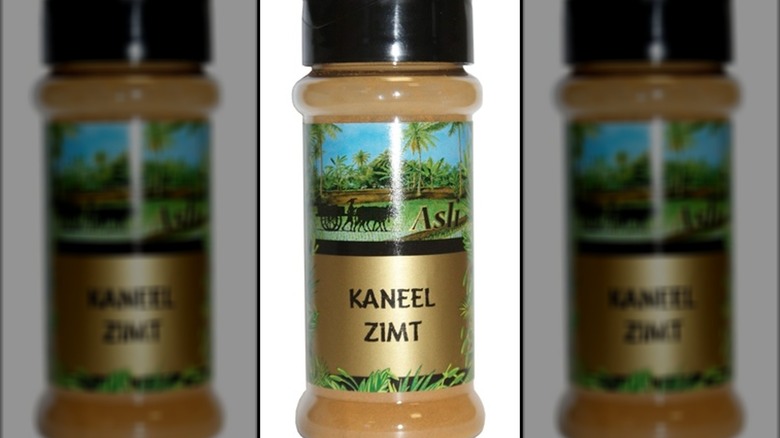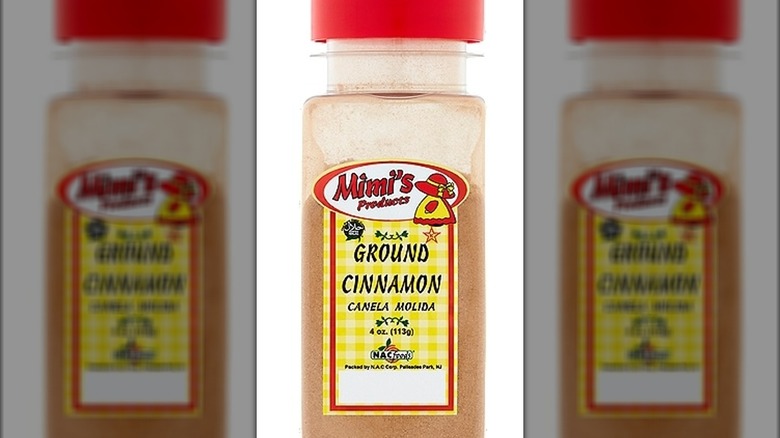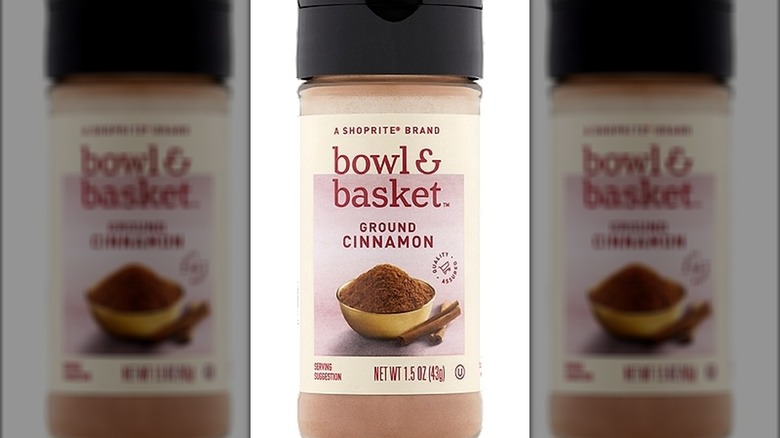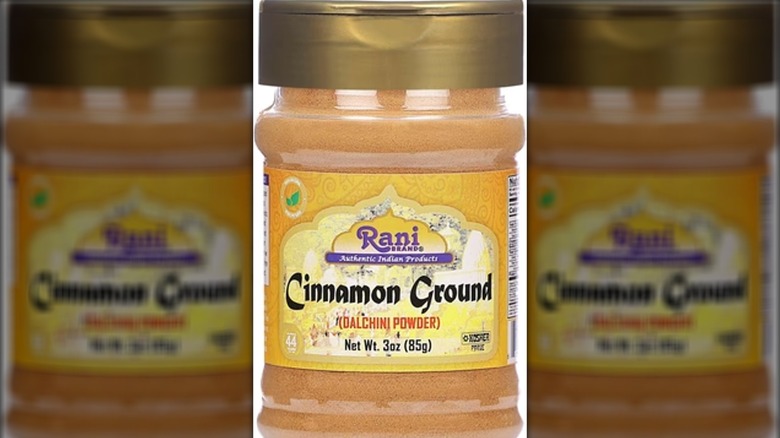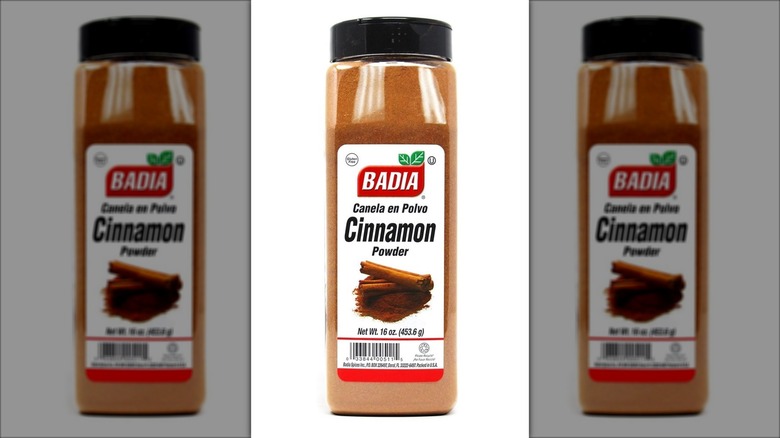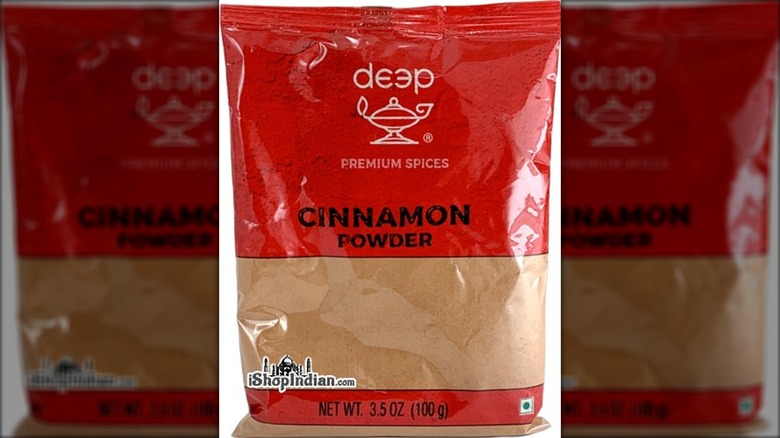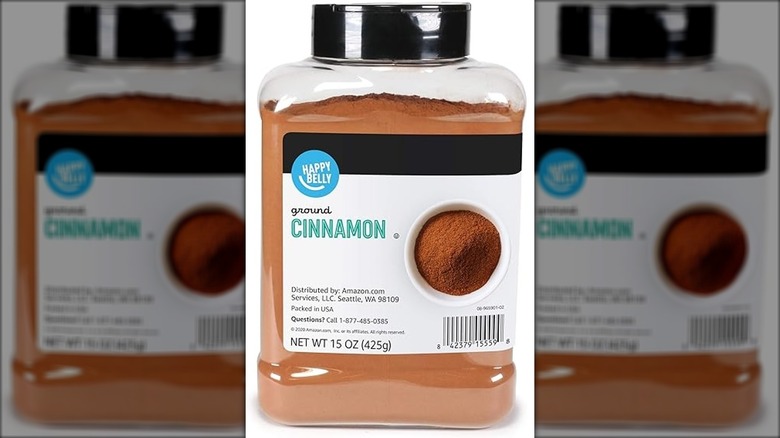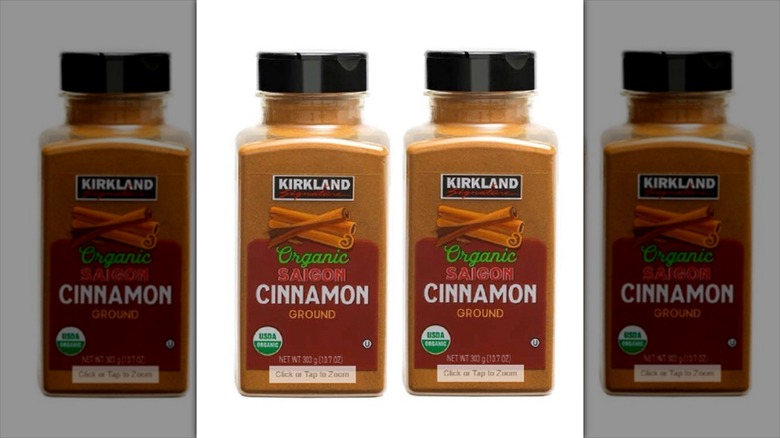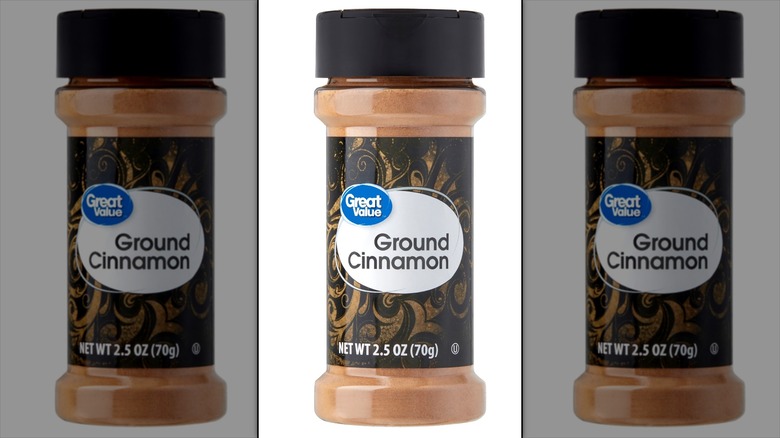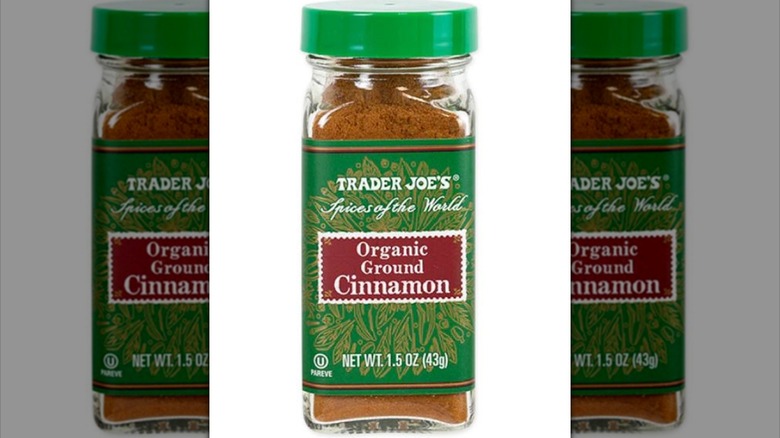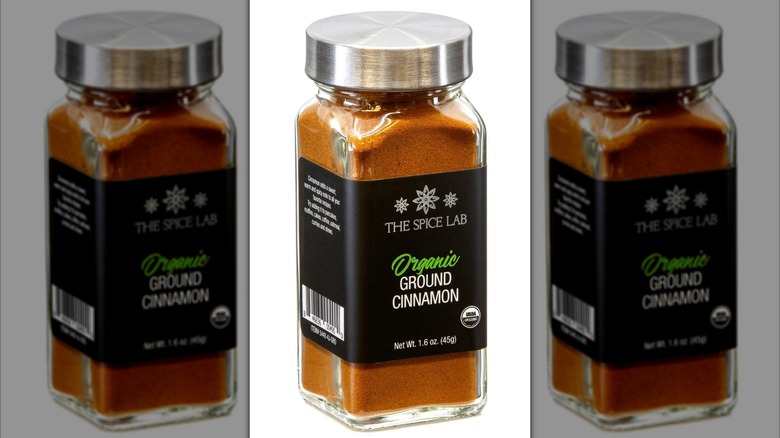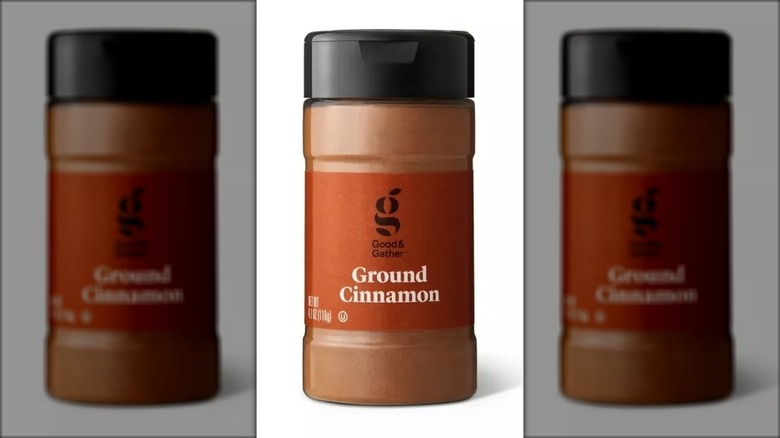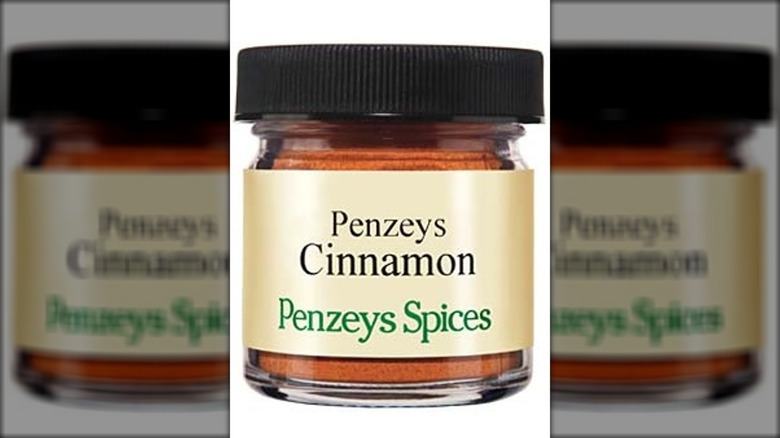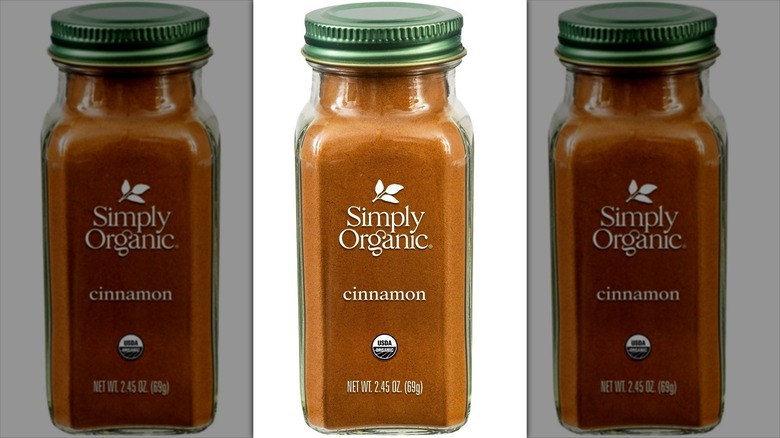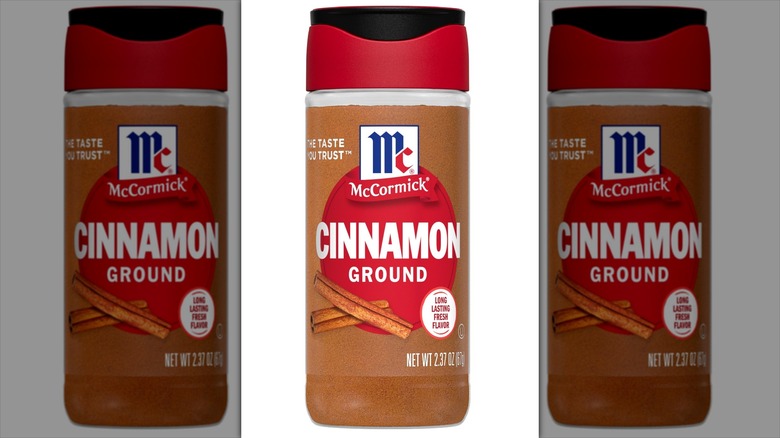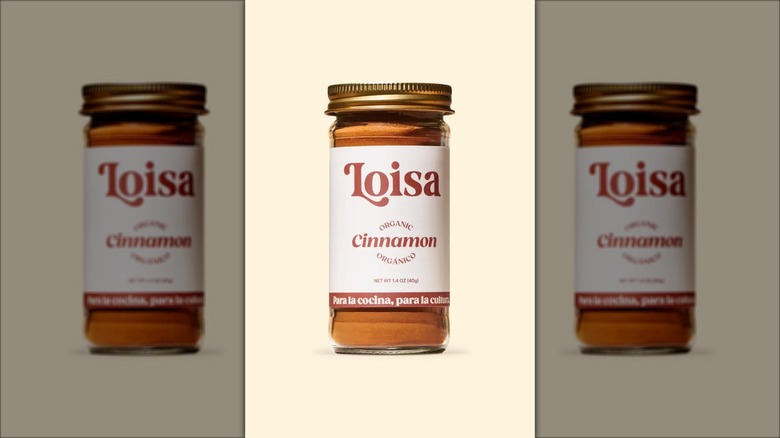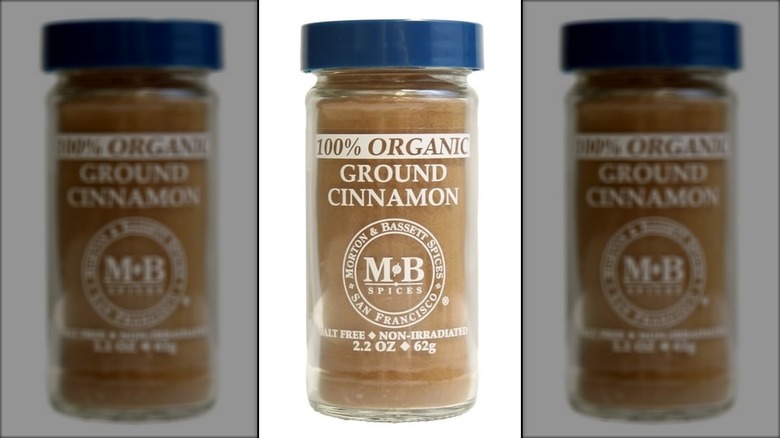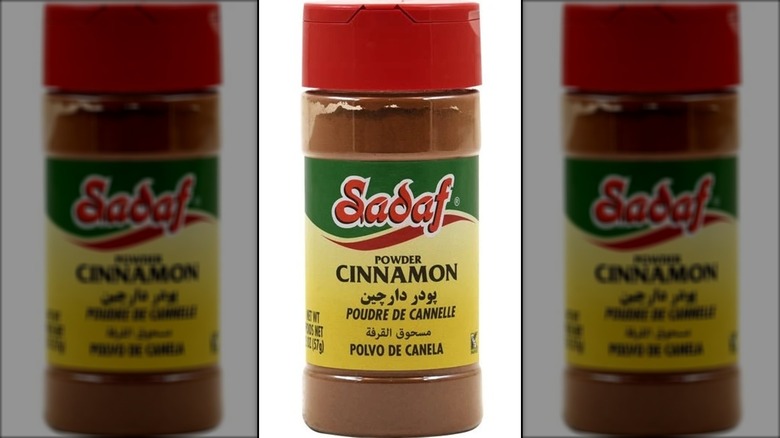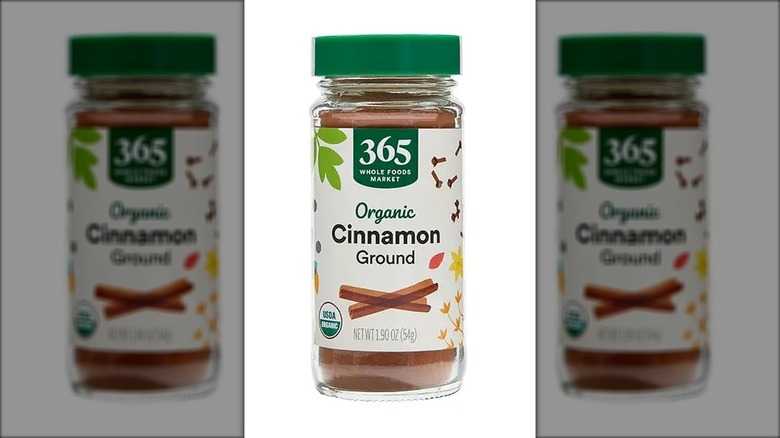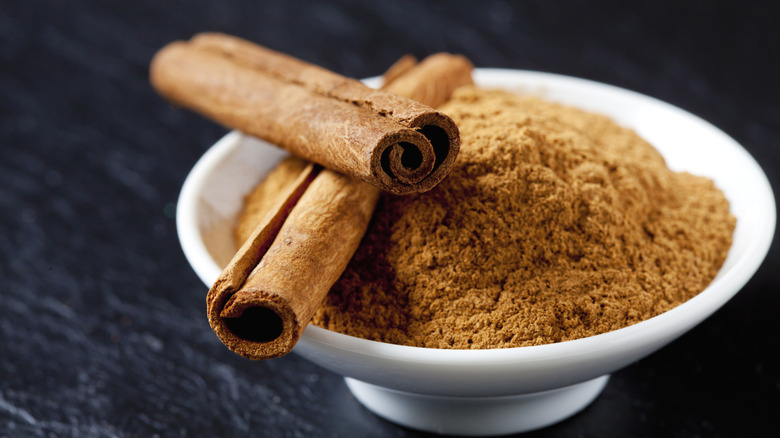12 Cinnamon Brands You Should Skip And 13 To Stock Up On
We may receive a commission on purchases made from links.
Recent testing has uncovered high amounts of lead in numerous cinnamon brands, making it essential to know which brands to skip and which to buy. Unfortunately, cinnamon, a spice most of us have in our cupboards, was subject to some of the biggest food recalls in 2024. There's no clear information about whether the cinnamon became contaminated during growing, manufacturing, or production.
The FDA says that side effects from consuming lead depend on how much you've consumed over time and other factors like age, with children being especially vulnerable. Lead consumption can cause neurological issues and learning problems in children, and can lead to a wide variety of other negative side effects for children and adults alike.
While there are no limits in the U.S. for lead in cinnamon, the United Nations' Food and Agriculture Organization suggests spices have no more than 2.5 parts per million (ppm) of lead to be safe, per NBC News, and the state of New York often recalls anything with more than 1 ppm, per Consumer Reports. So far, nobody has reported illnesses or negative side effects. However, if you encounter any of the high-lead cinnamon brands on our list, you'll want to throw them away or avoid buying them. Thus, when you're in the market for new cinnamon, it's a good idea to choose a brand from our list that has been tested as being safe and avoid the ones on our skip list.
Skip: El Chilar
Of the FDA-recalled cinnamon brands that we could still find available in stores online, El Chilar Canela Molida (ground cinnamon) was found to have the most lead. It was part of the March 6, 2024 FDA recall after samples were found to contain between 2.93 and 3.50 ppm of lead. However, the samples the FDA tested for its July 30, 2024 recall uncovered even more lead in other lot numbers. The amounts ranged from 3.75 all the way up to a whopping 7.01 ppm. Retailers the FDA found carrying versions of this brand that were eventually recalled included La Joya Morelense and El Torito Market. So, if you're considering buying this brand in international stores or online, take note.
Skip: Supreme Tradition
The FDA found various lots of Supreme Tradition Ground Cinnamon that had alarming amounts of lead and announced a recall on March 6, 2024. The amounts of lead in these lots ranged between 2.03 and 3.36 ppm. Its July 30, 2024 recall included another batch that had 2.37 ppm of lead. The ones the FDA tested positive for this much lead were from the Dollar Tree and Family Dollar. Another testing entity also uncovered lead in Supreme Tradition Ground Cinnamon in 2018. While Colonna Brothers stopped making and distributing all of its Supreme Tradition cinnamon products, you might still encounter some of its cinnamon products online from distributors who missed the recall.
Skip: Marcum
The FDA recalled two lots of Marcum Ground Cinnamon on March 6, 2024 and another two lots on July 30, 2024. The first ones recalled had between 2.90 and 3.20 ppm of lead, while the second ones had 2.22 to 2.14 ppm of lead. The cinnamon products that were recalled were all being sold by Save a Lot. Like Supreme Tradition, Marcum was made by Colonna Brothers, and was voluntarily recalled. Luckily, the only online distributor we can find that still has a listing for Marcum Ground Cinnamon is listing it as out of stock.
Skip: Swad
Swad Cinnamon Powder was first listed in an FDA recall on March 6, 2024. The offending samples came from Patel Brothers and had 2.12 ppm of lead. We've seen this brand in several international grocery stores (especially Indian ones). The later August 30, 2024 FDA recall showed that some samples from the same batch had as much as 2.89 ppm of lead. There were several batches of Swad Cinnamon Powder that were affected by high lead content, and they were distributed throughout various regions of the U.S. There are still plenty of packages for sale online. So, you might want to skip this brand next time you're buying bulk amounts of cinnamon.
Skip: La Fiesta
La Fiesta Canela Molida (ground cinnamon) showed up on the FDA's March 6, 2024 cinnamon recall list. The La Fiesta cinnamon products that the FDA found lead in were being sold by La Superior SuperMercados, and the affected lots had been distributed in California and Arizona, as well as Texas and Washington the previous year. Since we're seeing some for sale online, you might want to check how old it is before ordering — the lead concentration in the tested packages was 2.73 ppm — or skip it altogether.
Skip: Compania Indiilor Orientale
Another ground cinnamon brand you might encounter that was part of the FDA's July 30, 2024 recall is Compania Indiilor Orientale. It's a brand imported from Romania that is distributed by MAMTAKIM, Inc. and was available in places like Eurogrocery. When the FDA tested it, there were 2.23 ppm of lead in Compania Indiilor Orientale's Scorțișoarǎ Mǎcinatǎ (ground cinnamon). Even if you don't find jars in your local international food market anymore, you may want to skip ordering it online if it's a familiar brand for you and you're worried about lead content.
Skip: Asli
On August 30, 2024, the FDA updated its initial July 30, 2024 cinnamon recall list by adding the Asli brand. The lead concentration level in the sampled products ended up having 2.32 ppm of lead. The lot that the FDA tested came from A&Y Global Market. Asli still lists Asli Cinnamon Powder among its products on its website, and we could still find it for sale from several online sites. Still, you'll probably want to check the lot number against the recall list if you stumble upon it in an international market or skip it altogether.
Skip: Mimi's Products
Now, our list is venturing to products with high levels of lead that the FDA hasn't recalled. After all, the FDA allows a lot of things in our foods, and especially in ground spices. When Consumer Reports tested Mimi's Products Ground Cinnamon, it found 2.03 parts per million (ppm) of lead in the product, which it reported on September 12, 2024. This amount represents the highest amount of lead of any of the products that Consumer Reports tested that companies haven't voluntarily recalled. Note that you can still find Mimi's Products Ground Cinnamon for sale in stores like ShopRite and from several online markets. So, keep this brand in mind when you're deciding which to skip or buy.
Skip: Bowl & Basket
Bowl & Basket was another brand that Consumer Reports tested. With 1.82 ppm of lead found in tested containers, it has less lead than any of the products that the FDA recalled. However, this amount would still qualify it for a potential recall list in New York, where 1 ppm is considered an unsafe amount. So, if you're worried about lead content, it's probably best to choose another brand. Bowl & Basket Ground Cinnamon is currently available at ShopRite. Plus, you can find it from several online distributors.
Skip: Rani Brand
Rani Brand Cinnamon Ground is also one that hasn't been recalled by the FDA but samples Consumer Reports tested for lead were concerning. With 1.39 ppm of lead in the tested samples, it's a good idea to choose another brand. We can see that Rani Brands is still selling its ground cinnamon through its website and Amazon. So, you might want to ask some questions before purchasing if you're a loyal Rani Brand customer, or avoid it altogether.
Skip: Badia
Badia is a brand you're more likely to see in mainstream stores. While the amount of lead that Consumer Reports found in Badia Cinnamon Powder was on the lower side at 1.03 ppm, that level would still put it on the recall list in New York since it's over 1 ppm. You can still find it for sale at places like Walmart and online stores, including bulk sizes for the service industry. With unsafe levels of lead likely, we'd suggest skipping it.
Skip: Deep
The final brand on our skip list from Consumer Reports testing is Deep Cinnamon Powder. While it only tested at 1.02 ppm, it still has enough lead to potentially put it on a New York recall list. There are plenty of online stores selling it, including ones that cater to Indian cuisine. So, if you find some online or locally, you'll want to think twice about purchasing it if you're concerned about lead content.
Buy: Happy Belly
All the remaining brands on our list are ones that you can have more confidence about buying, since Consumer Reports tested it as having less than 1 ppm of lead. Happy Belly is a brand you'll find on Amazon, and it only tested at 0.87 ppm of lead. However, that amount of lead still isn't safe in large amounts. So, you'll want to limit yourself to just 0.25 of a teaspoon of Happy Belly Ground Cinnamon per day if you buy it.
Buy: Kirkland Signature
Another brand that should be safer to buy is Kirkland Signature. Consumer Reports tested Kirkland Organic Saigon Cinnamon and found that it only had 0.80 ppm of lead. You can get it from local stores like Walmart and Costco. Plus, there are companies selling it online. However, keep in mind that the amount of lead in this brand still limits you to only 0.25 of a teaspoon daily.
Buy: Great Value
Great Value is another brand of ground cinnamon that Consumer Reports tested and found to be okay within strict limits. You'll find it at Walmart since it's the store brand there. However, since tests found it to have 0.79 ppm of lead, you will need to limit yourself to just a 0.25 of a teaspoon of cinnamon daily, which isn't much. The Organic Great Value version wasn't part of the testing. So, we don't know how it stacks up.
Buy: Trader Joe's
Trader Joe's cinnamon also falls on Consumer Reports' list of ground cinnamon that tested okay with restriction. Trader Joe's Organic Ground Cinnamon came in at 0.69 ppm of lead in Consumer Reports' tests. Since Trader Joe's only sells organic cinnamon, you don't have to worry about getting the wrong one. However, there are still some risks to consuming it. So, it's best to limit yourself to no more than 0.25 of a teaspoon of it each day.
Buy: The Spice Lab
Another brand that's okay within limits according to Consumer Reports' testing is Organic Ground Cinnamon from The Spice Lab. It has 0.60 ppm of lead in it. So, it's another that you'll want to use in amounts that are no more than 0.25 of a teaspoon a day. You can find it at Walmart as well as from several online sources. However, you'll want to note that The Spice Lab sells several types of cinnamon, and the only one that Consumer Reports tested was the organic one.
Buy: Good & Gather
Good & Gather is the store brand of cinnamon you can find at Target. With Consumer Reports testing it at 0.56 ppm of lead, it's in the okay range. However, it's another one that you should only be eating at the rate of only up to 0.25 of a teaspoon per day. The tested version was Good & Gather Ground Cinnamon. Target has Good and Gather Organic Ground Cinnamon as well, but we don't know how it rates.
Buy: Penzeys
Penzeys has three types of cinnamon that Consumer Reports tested and found to fall in the okay category of cinnamon. Penzeys Ceylon Cinnamon tested at 0.78 ppm of lead, which means you should only consume about 0.25 of a teaspoon daily. However, Penzeys Vietnamese Cinnamon tested at 0.55 ppm, and Penzeys Ground Cinnamon tested at 0.37 ppm, meaning that you'd be safe eating up to 0.5 teaspoons of either of them each day. Penzeys told Consumer Reports that it starts with whole spices and does its own grinding to ensure the safety of its spices. It also said that "the raw material is tested prior to grinding." So, you know you're getting safer spices from Penzeys in general.
Buy: Simply Organic
Simply Organic tested even better than the previous ones on our list, with Consumer Reports only finding 0.28 ppm of lead in the testing sample. Thus, you can feel confident eating up to 0.75 of a teaspoon of it each day. It's also easy to find locally in stores like Walmart or online. While the company doesn't test items after processing, Simply Organic told Consumer Reports that it has "comprehensive in-house inspections and additional product testing for every shipment of incoming material." It says that anything over 1 ppm of lead doesn't pass muster.
Buy: McCormick
McCormick is a brand you can find practically anywhere in person and online. So, you'll be happy to know that it tested in the okay category for lead. Consumer Reports found samples to contain only 0.23 ppm of lead. Thus, you can feel confident using up to 1 teaspoon of McCormick Ground Cinnamon per day. McCormick told Consumer Reports that it actively analyzes "environmental conditions that may increase the natural occurrence of heavy metals." So, you can trust McCormick's cinnamon to have less lead than many other brands.
Buy: Loisa
Our final four suggestions for cinnamon brands to buy are ones that are safe enough to allow you to consume more than 1 teaspoon per day. When Consumer Reports tested Loisa Organic Cinnamon, it found that it only had 0.04 ppm of lead. So, you can feel confident using up to 5.75 teaspoons daily (not quite 2 tablespoons). All Loisa's spices are organic, so you don't have to second-guess if you're getting the right type if you see it for sale locally or decide to order it online.
Buy: Morton & Bassett San Francisco
Consumer Reports tested two types of Morton & Bassett San Francisco brand ground cinnamons. Its regular Ground Cinnamon tested at 0.55 ppm of lead, while its 100% Organic Ground Cinnamon tested at only 0.04 ppm of lead. The difference is that you'd only want to consume 0.25 teaspoons of the regular cinnamon, while you could use as much as 6 teaspoons (2 tablespoons) of the organic one daily. You can find this brand in stores like Target and Walmart as well as from online sources. However, upgrading and paying a little more for the organic version is going to be your safest bet.
Buy: Sadaf
Sadaf is a fairly common brand that we've seen in local international grocery stores and online, and its Powder Cinnamon ranks high on Consumer Reports' list of cinnamon powders that are safest to use. With it only testing at 0.04 ppm of lead, you can confidently use up to 6.75 teaspoons (almost 2.25 tablespoons) of it each day and know it's in the safe range. So, go ahead and use it to make a batch of cinnamon rolls or something else extra cinnamony without worry.
Buy: 365 Whole Foods Market
The safest brand of ground cinnamon that Consumer Reports tested was the 365 Whole Foods Market brand. When it tested 365 Whole Foods Market Ground Cinnamon, this variety came in at 0.12 ppm of lead, which is safe up to 2 teaspoons per day. However, it found that 365 Whole Foods Market Organic Cinnamon Ground only had 0.02 ppm of lead, which means you could eat 16 teaspoons (about 5.33 tablespoons) of it daily without worry. So, if cinnamon is something you consume in mass quantities every day, you're probably going to want to start getting the organic version from Whole Foods.
Methodology
To gauge which types of cinnamon you should skip and which you should stock up on, we looked at the results from entities that had tested samples of various cinnamon brands. Any above 1 ppm of lead we included in our "skip" list, while any with less than 1 ppm of lead we included in our "buy" list.
The cinnamon brands on our list that we suggest to skip are all ones that have been tested to have high lead contents. The recalled ones were either part of the FDA's March 6, 2024 recall; the FDA's July 25, 2024 recall; or the FDA's July 30, 2024 recall. These recalls included cinnamon powder products with lead levels ranging from 20 to 2.03 ppm. Others on our list were among the cinnamon brands tested by Consumer Reports in September 2024 and found to have between 3.52 and 1.02 ppm of lead. While there are a few extra brands from these lists that we didn't mention here, they are ones that we cannot find currently available for purchase online since many companies (like Paras and EGN) have pulled their heavily-leaded products from shelves already.
All of the cinnamon products we have suggested to buy are ones that Consumer Reports tested and found to have less than one ppm of lead. However, take note how much lead is in each one since the suggested safe daily amount ranges from 0.25 to 16 teaspoons.
